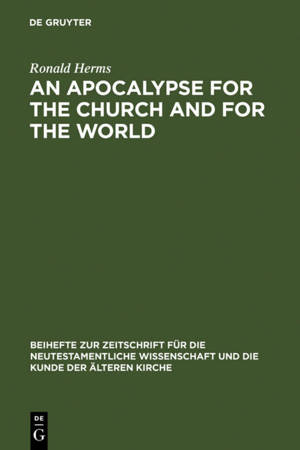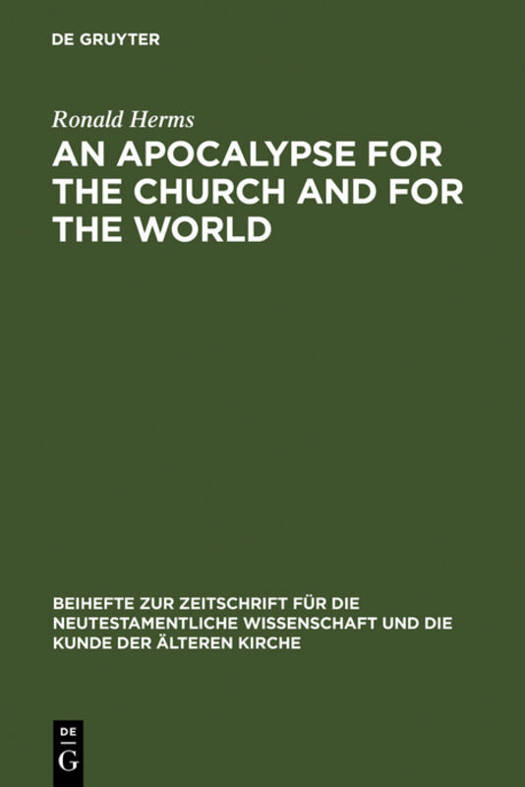
- Afhalen na 1 uur in een winkel met voorraad
- Gratis thuislevering in België vanaf € 30
- Ruim aanbod met 7 miljoen producten
- Afhalen na 1 uur in een winkel met voorraad
- Gratis thuislevering in België vanaf € 30
- Ruim aanbod met 7 miljoen producten
An Apocalypse for the Church and for the World
The Narrative Function of Universal Language in the Book of Revelation
Ronald HermsOmschrijving
This monograph examines the problem of universally inclusive language in the book of Revelation and the resulting narrative tension created by narrowly exclusive language. Analysis is conducted by placing relevant texts within their literary-narrative context and through consideration of how the author understood and appropriated biblical traditions. A key feature of this study is its examination of four early Jewish documents with significant similarities to the problem being examined in Revelation. From these documents (Tobit; Similitudes of Enoch [1 Enoch 37-71]; 4 Ezra; and, Animal Apocalypse [1 Enoch 85-90]) a contextual picture emerges which allows a fuller understanding of Revelation's distinctive approach toward the problem of the fate of the nations. This study contends that the interpretive strategies applied to biblical traditions in Revelation have their roots in the wider early Jewish milieu. From this comparative analysis, identifiable patterns with regard to the role of 'universal terminology' in the communicative strategy of John's Apocalypse emerge.
Specificaties
Betrokkenen
- Auteur(s):
- Uitgeverij:
Inhoud
- Aantal bladzijden:
- 314
- Taal:
- Engels
- Reeks:
- Reeksnummer:
- nr. 143
Eigenschappen
- Productcode (EAN):
- 9783110193121
- Verschijningsdatum:
- 16/11/2006
- Uitvoering:
- Hardcover
- Formaat:
- Genaaid
- Afmetingen:
- 164 mm x 233 mm
- Gewicht:
- 566 g

Alleen bij Standaard Boekhandel
Beoordelingen
We publiceren alleen reviews die voldoen aan de voorwaarden voor reviews. Bekijk onze voorwaarden voor reviews.









